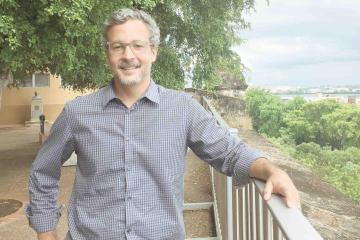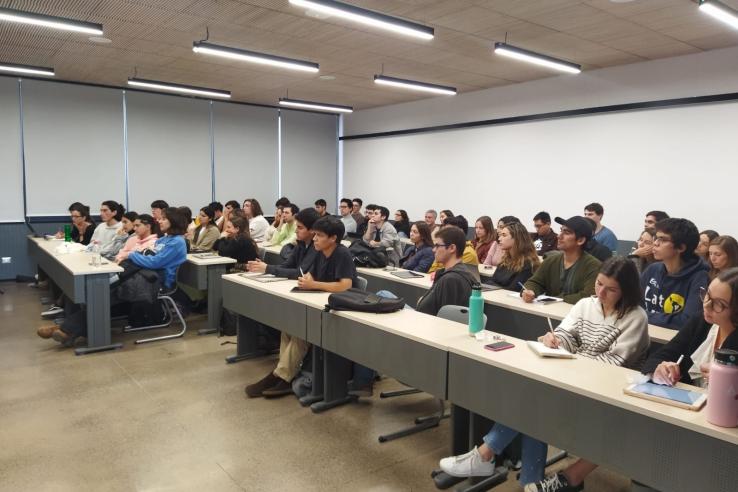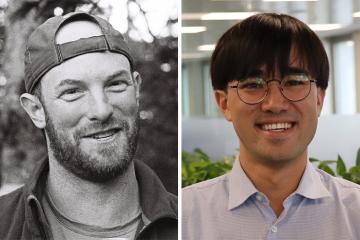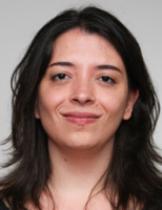
Inspiring students to explore development careers in Chile and Guatemala

While many tend to associate economics primarily with careers in investments and banking, development economics offers an alternative avenue that may be worth exploring. To help broaden this general perception, J-PAL Latin America and the Caribbean (LAC) recently held two events at partner universities to increase awareness of development career opportunities. These events supported our goal of diversifying the field of economics by inspiring students to consider various career trajectories.
In illustrating the impact such events can have on a student's perception and choices, consider the experience of Fernanda de la Fuente, a student from Pontificia Universidad Católica de Chile (UC Chile). Fernanda shared:
"The truth is that when I attended the event, I was in the process of deciding which path
to take in my studies. I didn't know much about how to practically apply what I had
learned during my years in college. The event helped me a lot in understanding the
different areas where an economist can work, whether it's more focused on research
and theory or a more applied approach."
Universidad Catolica Chile: Bringing J-PAL LAC closer to students
Although many students at UC Chile are aware of J-PAL LAC as a research center on campus, the organization's goals and activities remain a bit of a "black box." The event hosted in May aimed to shed light on the J-PAL LAC’s work and demonstrate how development economics can be a force for global good, making it more present in the community.
It kicked off with a ten-minute introduction about J-PAL given by Paula Pedro, J-PAL LAC's executive director. This was followed by a panel discussion and small group conversations, featuring researchers from the J-PAL network, who discussed their work and its impact on society. For instance, J-PAL invited researchers Josefa Aguirre and Pablo Celhay spoke about their work in reducing gender inequality and improving health, while J-PAL LAC’s co-scientific directors Claudio Ferraz and Francisco Gallego delved into political economy and education, respectively.
Fernanda added, "I lean more towards practical aspects, so I really enjoyed hearing how J-PAL currently works to apply theory to reality through various programs and policies aimed at finding possible solutions to societal problems." This sentiment underscores the value of connecting academic learning with real-world applications.
Universidad del Valle de Guatemala: A call for interdisciplinary involvement
At Universidad del Valle de Guatemala (UVG), where there is no current dedicated economics track, the event focused on showing students how other disciplines could also contribute to J-PAL LAC's mission of reducing poverty, offering an open round table with specialists for students to ask questions on how they could become more involved with J-PAL's work.
Similarly to the activity at UC, the event at UVG began with a brief introduction about J-PAL by Paula Pedro. A key highlight was the recent partnership established between UVG and J-PAL LAC, which aims to promote the use and generation of evidence for the design of public policies and social programs in the country. A subsequent panel discussion featured Benjamín Leiva, acting director of Observatorio Económico Sostenible at UVG, and Constanza Alarcón, policy manager at J-PAL LAC.
While the approaches at UC Chile and UVG varied according to the context, both emphasized the versatility of development economics and its potential for transformative change, fostering a broader understanding and enthusiasm among students for the many facets of the field.
Our path forward
J-PAL LAC's recent gatherings at UVG and UC Chile are just the beginning. By exposing students to the diverse opportunities within economics, particularly in development, we hope to inspire a new generation of thinkers and doers committed to making a difference. These types of events aim to provide a platform where questions can be asked, knowledge shared, and connections made, ensuring that the next wave of economists is well-equipped to address the challenges of our time.
Related Content

Affiliate Spotlight: Gustavo J. Bobonis on advancing evidence generation and use in Puerto Rico

DEDP Alumni Spotlight: Digging deeper into research questions inspired at MIT

